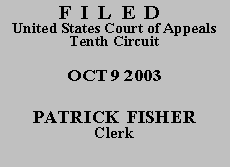

| UNITED STATES OF AMERICA,
Plaintiff-Appellee, v. DAVID HUDAK, Defendant-Appellant. |
|
Detention of a criminal defendant pending trial does not violate a defendant's due process rights under the Fifth Amendment, so long as the confinement does not amount to punishment. See Bell v. Wolfish, 441 U.S. 520, 536-37 (1979). In considering whether Mr. Hudak's detention has been excessively prolonged and is no longer regulatory, but punitive, the district court considered several factors: the length of detention; the extent of the prosecution's responsibility for the trial delay; the strength of the evidence of flight risk and dangerousness, upon which the detention was originally based. See United States v. Millan, 4 F.3d 1038, 1043 (2d Cir. 1993) (stating factors). The court also considered the seriousness of the charges, the strength of the government's case, the complex nature of the case, and whether the either side needlessly added to the complexity of the case. The district court's assessment of the factors was thorough, complete, and its findings were correct.(2) AFFIRMED.
ENTERED FOR THE COURT
PER CURIAM
*. This order and judgment is not binding precedent, except under the doctrines of law of the case, res judicata, and collateral estoppel. The court generally disfavors the citation of orders and judgments; nevertheless, an order and judgment may be cited under the terms and conditions of 10th Cir. R. 36.3.
1. After examining the briefs and appellate record, this panel has determined unanimously that oral argument would not materially assist the determination of this appeal. See Fed. R. App. P. 34(a)(2); 10th Cir. R. 34.1(G). The case is therefore ordered submitted without oral argument.
2. We note that our holding today does not foreclose Mr. Hudak from bringing future due-process challenges if, as he predicts, his trial does not begin on October 15th and his detention is prolonged. See United States v. Salerno, 481 U.S. 739, 747 n.4 (1987) (recognizing the existence of a "point at which detention in a particular case might become excessively prolonged, and therefore punitive, in relation to Congress' regulatory goal," but expressing no view as to when that point is reached).